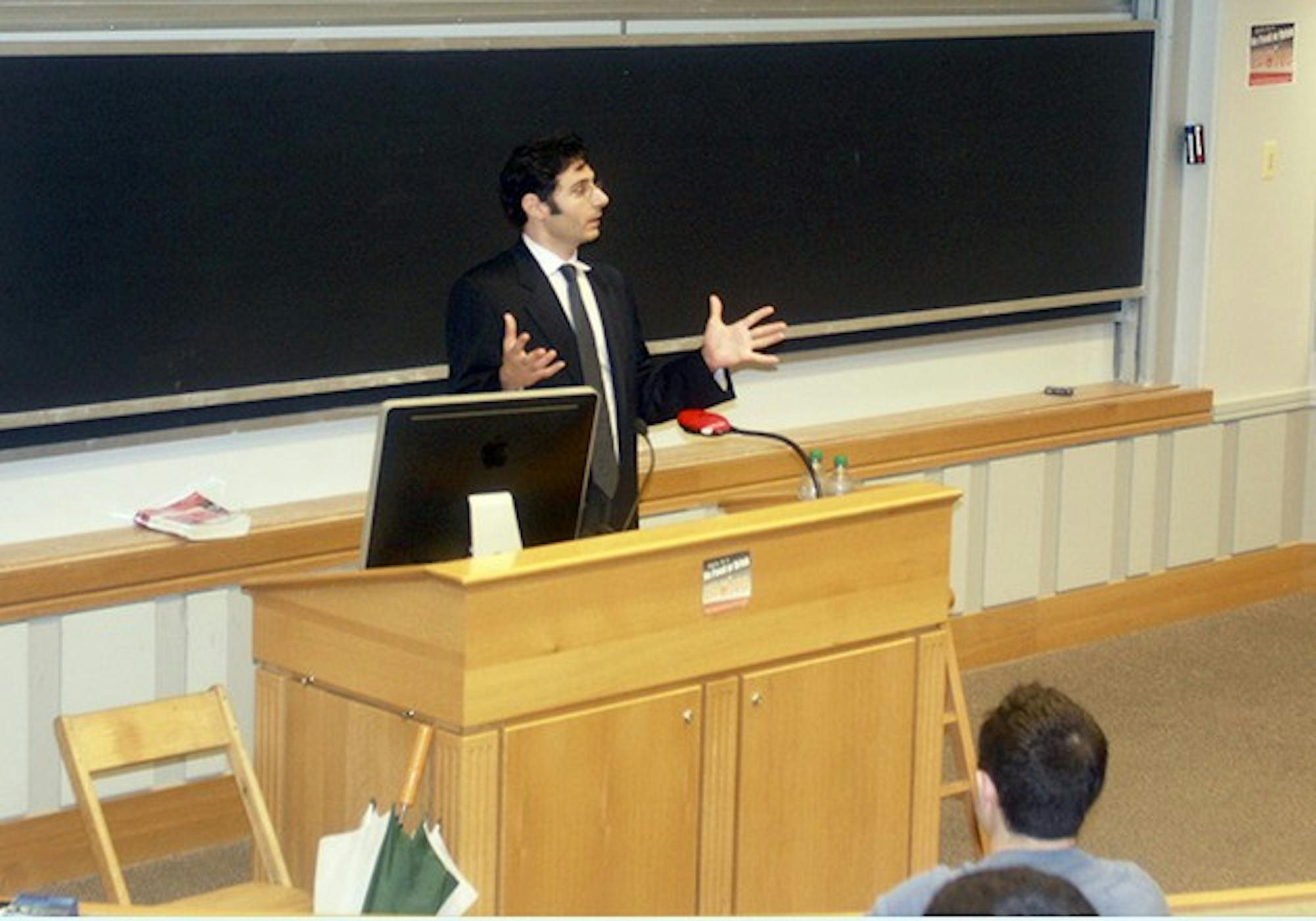Placing contemporary Palestinian politics within a historical context, Barfi traced the roots of Palestinian diplomatic dissension and stalemate through decades of internal strife and murky political arrangements between members of ruling parties.
The current diplomatic paralysis among Palestinian authorities has resulted from the leadership's collective inability to resist popular and revolutionary impulses, according to Barfi. He conceived a model to explain the delicate balance of power within the Hamas organization, which he called the "Hamas Triangle."
The sheer complexity of how power is assumed, maintained and manipulated in the Palestinian region can at times prevent a clear understanding of the region and its political future, he said.
The 1980s a decade that featured both the First Intifada, or uprising, and the founding of Hamas marked a turbulent and transformative time in Palestinian politics, according to Barfi. 1987, the year of Hamas' founding, was a pivotal moment in the history of Palestinian culture, reflecting a shift away from secularism in the regional conception of political authority. Students interviewed by The Dartmouth said that popular media often simplifies the complex relationship between Palestinian leaders and their Israeli counterparts, neglecting subtle but telling sociocultural tensions, motives and historical allegiances that determine the shape of Palestinian diplomatic policy. "Journalism in some of our country's major newspapers is often lacking when it comes to the intricacies of the region, so any time a lecturer can be brought in to bring a face-to-face account of the region, it's extremely helpful," Paul Lazarow '13, president of Chabad at Dartmouth and the lecture's head organizer, said in an email to The Dartmouth.
"The talk helped me appreciate the complexity of the issue," Dartmouth Students for Israel president Adam Schneider '15 said. "There are so many parties involved and nearly all of them exhibit a total lack of leadership." Students said that the lecture offered attendees a more profound and contextual understanding of their relationship to the Israel-Palestine conflict. "As for my personal role or place in the conflict as an American Jew, I care deeply about the Jewish state and its decades-long quest for peace," Lazarow said. "Integral to the Jewish state's quest for peace is the Palestinian leadership and people." Barfi is a regular contributor to Project Syndicate, the world's largest commentary-focused association of newspapers. His articles' topics range from the Libyan political climate to Egyptian foreign policy, and his writings have been featured in The Guardian, The New Republic, Foreign Policy and The Washington Post.
Since January 2011, Barfi has worked as a research fellow at the New America Foundation, a nonpartisan think tank headquartered in Washington, D.C. Barfi also spent six months in Libya during the Arab Spring last year and has since published various papers and articles about the Libyan political climate.
The event was co-sponsored by the government and history departments, the Rockefeller Center for Public Policy and Chabad at Dartmouth.




